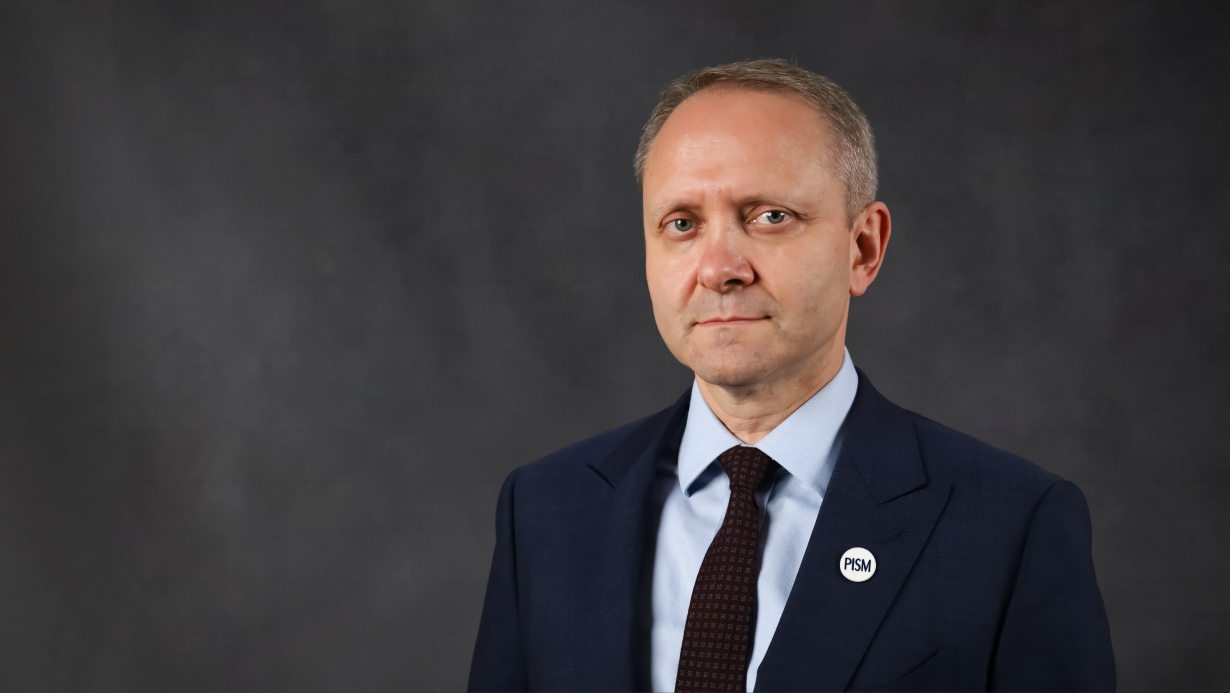Sweden Becomes a Member of NATO
On 11 March, the flag of the Kingdom of Sweden was raised in front of NATO headquarters in Brussels. After ratification of the accession treaties by all member states, Sweden completed the final procedures necessary for membership. After submitting its accession documents to the U.S. on 7 March, it became the 32nd member of the North Atlantic Treaty Organization.
 Heiko Junge / Ritzau Scanpix Norway / Forum Podobne
Heiko Junge / Ritzau Scanpix Norway / Forum Podobne
Why did Sweden decide to join NATO?
Russia’s full-scale aggression of Ukraine on 24 February 2022 changed Sweden’s threat perception and undermined the assumptions of its post-Cold War defence policy. After the dissolution of the USSR, Sweden, like most European countries, assumed that it would be possible to build a stable relationship with Russia. Although by joining the European Union in 1995 Sweden abandoned the policy of neutrality it had pursued since the beginning of the 19th century, it chose to remain a non-aligned state, that is, outside military alliances. It announced that any decision on NATO membership would be made together with Finland, which, due to the latter’s location, has a direct impact on Swedish security and is a country with which it shares close cultural and historical ties. After the aggression against Ukraine, Russia was recognised by both countries as a revisionist state that could also attack NATO and EU countries. Sweden must have assumed that in the event of aggression against Finland and/or the Baltic states, it would be in its vital interest to support them. Without security guarantees, however, it would be vulnerable to threats of attack on its territory to deter it from providing such assistance. On 17 May 2022, Sweden and Finland jointly applied for Alliance membership.
Why was Sweden’s accession delayed?
Accession was delayed because of opposition from Turkey and Hungary. Both countries did not ratify the accession protocols until this year, with Turkey doing so in January and Hungary following only in early March. Among other things, Turkey demanded that Sweden become more involved in countering the Kurdistan Workers’ Party (PKK) and other Kurdish organisations, which are considered a threat by Turkey but which have had considerable political freedom of action on Swedish territory. Although Sweden made the necessary changes to its laws, strengthened anti-terror cooperation with Turkey, and lifted the embargo on arms sales to Turkey, the Turkish authorities delayed ratification by demanding further concessions from the U.S. on the sale of F-16 fighter planes. The Hungarian authorities delayed ratification to put political pressure on Sweden to limit criticism from it over violations of democratic standards. Unlike Turkey’s conditions, Hungary’s demands were political in nature. The vague nature of Hungary’s demands meant that it would not ratify accession earlier than Turkey, although it had assured that it would not be the last country to approve Sweden’s membership.
Does Sweden’s membership strengthen NATO?
Sweden’s NATO membership will make it easier to conduct collective defence missions in the Arctic and Baltic Sea regions. Sweden’s air force and navy will facilitate maintaining control of NATO airspace and maritime communication routes, supporting the deployment of troops from the U.S. to Europe, and sending reinforcements to Finland and the Baltic states. Sweden’s ability to protect Gotland, strategically located in the Baltic Sea, is of key importance. Swedish ground troops will also support NATO’s operations on the Eastern Flank as part of the Alliance’s forward defence strategy. Sweden announced the deployment of a battalion as part of a NATO multinational battle group in Latvia in 2025, which will facilitate an increase in the unit to brigade size. The Swedish air force will complement defence of the airspace of allies that do not have the necessary capabilities. Exercises in late February and early March involving U.S. B-1 and B-52 strategic bombers and Swedish JAS-39 Gripen fighters over Swedish territory signalled that the country was ready to support all dimensions of deterrence policy, including nuclear deterrence. Sweden’s entry into NATO will be an important element of the Alliance’s 75th anniversary summit, which will be held in Washington in July. It will send the signal that the Alliance is strong and united in the face of the threat from Russia. To further enhance NATO’s credibility, Sweden, like other European Alliance member states, will need to strengthen its capabilities. This primarily concerns ground troops, air and missile defence systems, and long-range precision-strike capabilities.
How might Sweden’s NATO membership affect cooperation with Poland?
Although Sweden and Poland are covered by different NATO regional plans (Sweden—the Arctic and Atlantic regions; Poland—Western and Central Europe) it is in their mutual interest to strengthen deterrence and defence in the Baltic Sea and on the Alliance’s Eastern Flank. A new area for cooperation will be Sweden’s presence in the battlegroup in Latvia, which Poland supports with a tank company. Poland, meanwhile, can assist Sweden in its ability to defend Gotland, as already demonstrated during Sweden’s Aurora exercise in 2023 by conducting a parachute landing on the island and deploying a missile unit there. Mine and anti-submarine warfare remain traditional areas of cooperation. Sweden, which has a modern defence industry, can support the technical modernisation of the Polish armed forces. Poland has purchased early warning aircraft from Sweden and recently signed a contract to buy several thousand Carl Gustaw anti-tank grenade launchers along with several hundred thousand rounds of ammunition.



.jpg)
.jpg)
